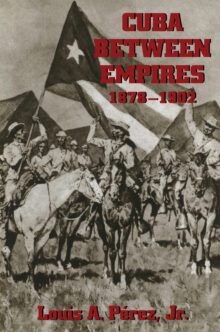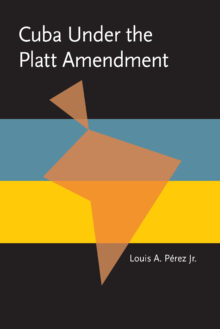
Louis A. Pérez Jr.
Louis A. Perez Jr. is J. Carlyle Sitterson Professor of History at The University of North Carolina at Chapel Hill.
The Archives Of Cuba/Los Archivos De Cuba
The Archives of Cuba/Los archivos de Cuba is the first comprehensive guide to the archival holdings and manuscript collections located throughout the fourteen provinces of Cuba, and each is identified with its local address. The collections hold a vast assortment of research materials from the sixteenth through the twentieth centuries. Records encompass family papers, government documents, parish collections, notary records, corporate papers, archives of private associations, personal collections, and much more. Sites listed include the Archivo Nacional, the Biblioteca Nacional Jose Marti, provincial archives, municipal archives and museums, parish archives, cemetery archives, and many others. The volume also provides a general descriptive inventory of each archival holding and manuscript collection. It is an indispensable reference tool for anyone conducting research on Cuban history or culture.
Cuba between Empires, 1878-1902
Cuban independence arrived formally on May 20, 1902, with the raising of the Cuban flag in Havana – a properly orchestrated and orderly inauguration of the new republic. But something had gone awry. Republican reality fell far short of the separatist ideal. In an unusually powerful book that will appeal to the general reader as well as to the specialist, Louis A. Perez, Jr., recounts the story of the critical years when Cuba won its independence from Spain only to fall in the American orbit.
The last quarter of the nineteenth century found Cuba enmeshed in a complicated colonial environment, tied to the declining Spanish empire yet economically dependent on the newly ascendant United States. Rebellion against Spain had involved two generations of Cubans in major but fruitless wars. By careful examination of the social and economic changes occurring in Cuba, and of the political content of the separatist movement, the author argues that the successful insurrection of 1895-98 was not simply the last of the New World rebellions against European colonialism. It was the first of a genre that would become increasingly familiar in the twentieth century: a guerrilla war of national liberation aspiring to the transformation of society.
The third player in the drama was the United States. For almost a century, the United States had pursuedthe acquistion of Cuba. Stepping in when Spain was defeated, the Americans occupied Cuba ostensibly to prepare it for independence but instead deliberately created institutions that restored the social hierarchy and guaranteed political and economic dependence. It was not the last time the U.S. intervention would thwart the Cuban revolutionary impulse.
Cuba under the Platt Amendment, 1902–1934
• Choice 1987 Outstanding Academic Book
This book examines the early years of the Cuban Republic, launched in 1902 after the war with Spain. Although no longer a colony, the country was still hobbled by continuing dependence on and exploitation from a foreign power. Pérez shows how U.S. armed intervention in Cuba in 1898 and subsequent military occupation revitalized elements of the colonial system that would serve imperialist interests during independence. The concessions of the Platt Amendment in 1903 became the principal instrument for U.S. expansion in Cuba. The U.S. then gained control over resources and markets.



